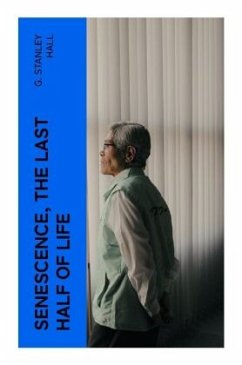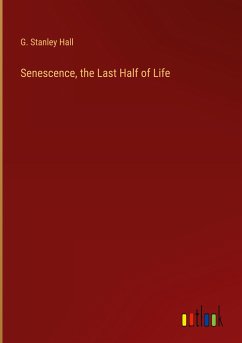In "Senescence, the Last Half of Life," G. Stanley Hall intricately explores the psychological and physiological aspects of aging, illuminating the often-overlooked final decades of human life. Employing a blend of empirical research and philosophical inquiry, Hall delves into themes of wisdom, societal roles, and the evolving identity of the individual during senescence. His literary style is scholarly yet accessible, making complex ideas on health, development, and human experience resonate with both academic and general audiences. The text stands as a pivotal work in the field of gerontology, offering insights that were groundbreaking for its time, set against the backdrop of early 20th-century American psychology where the interplay of aging and mental health was just beginning to receive attention. G. Stanley Hall, a pioneer in psychology and education, founded the American Psychological Association and significantly contributed to developmental psychology. His own experiences with aging and his commitment to understanding human development through the lifespan likely influenced his exploration of senescence. Hall's background in both psychology and philosophy gives depth to his arguments, revealing the intricate connections between aging and the societal structures surrounding it. "Senescence, the Last Half of Life" is a compelling read for anyone interested in the complexities of aging and the psychological transformations that accompany it. Hall's insights are not only relevant to scholars and practitioners in psychology and gerontology but also invaluable for caregivers and the general public, fostering a greater understanding of the dignity and potential within the last chapters of life.
Bitte wählen Sie Ihr Anliegen aus.
Rechnungen
Retourenschein anfordern
Bestellstatus
Storno








